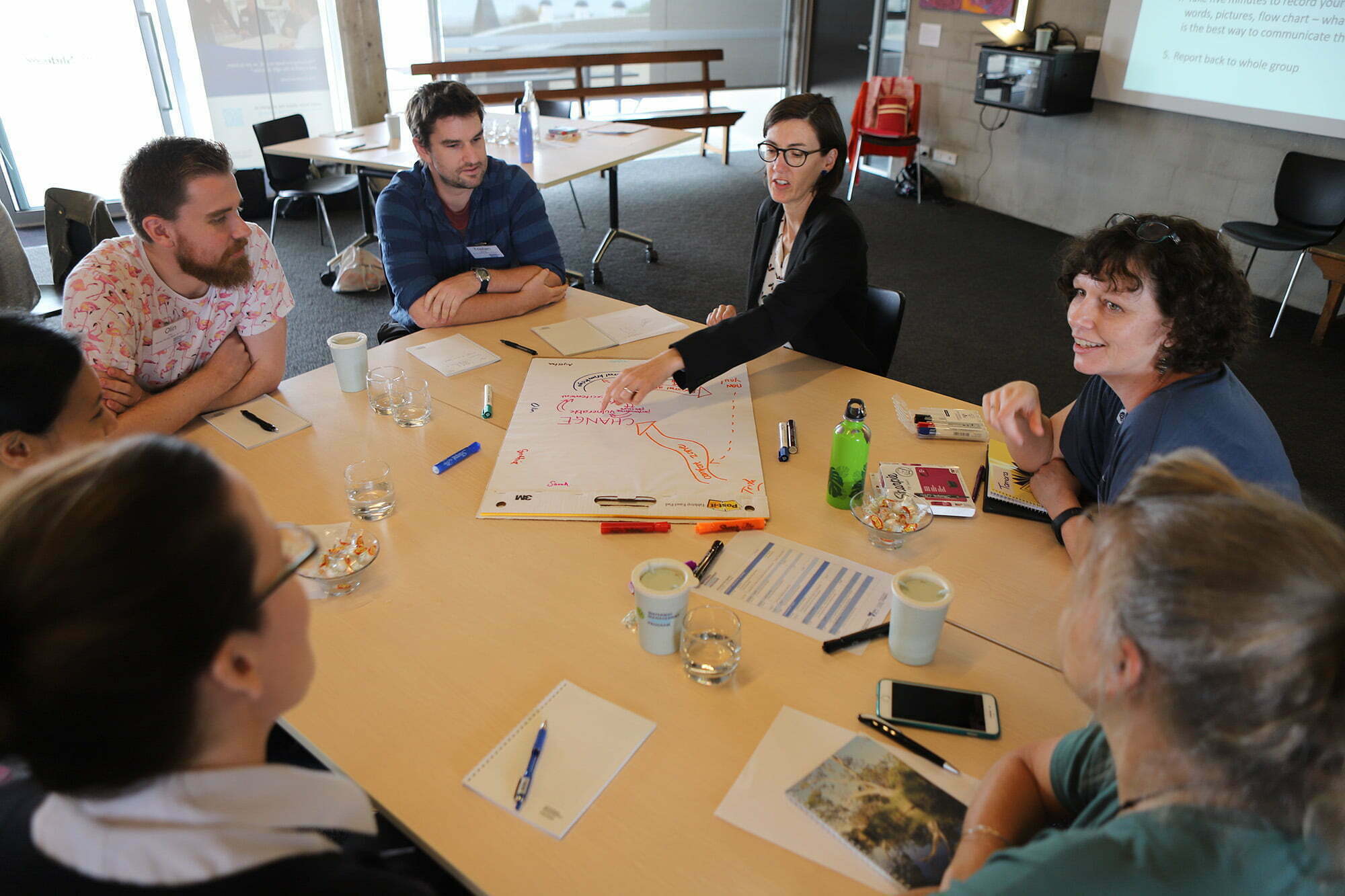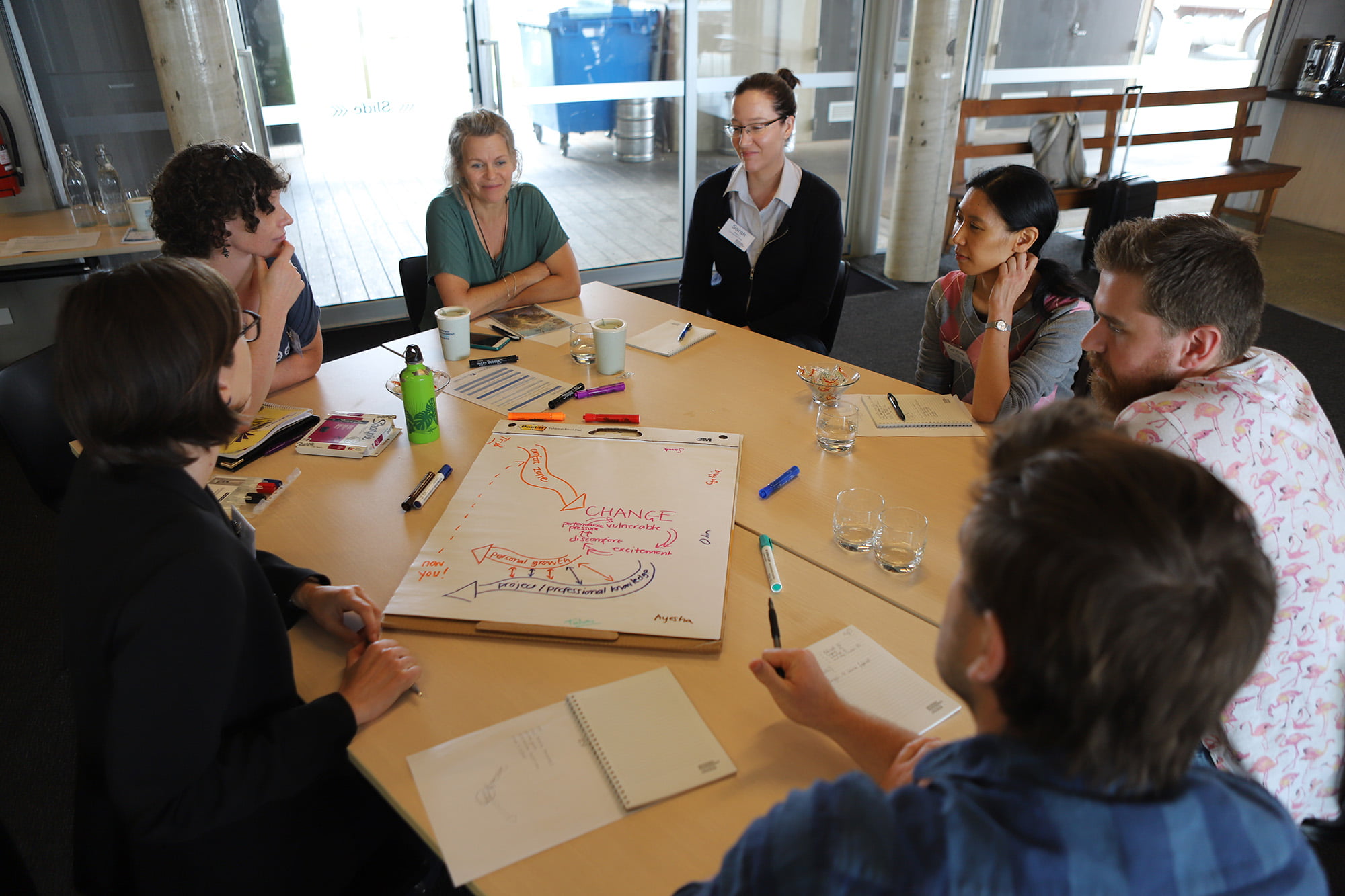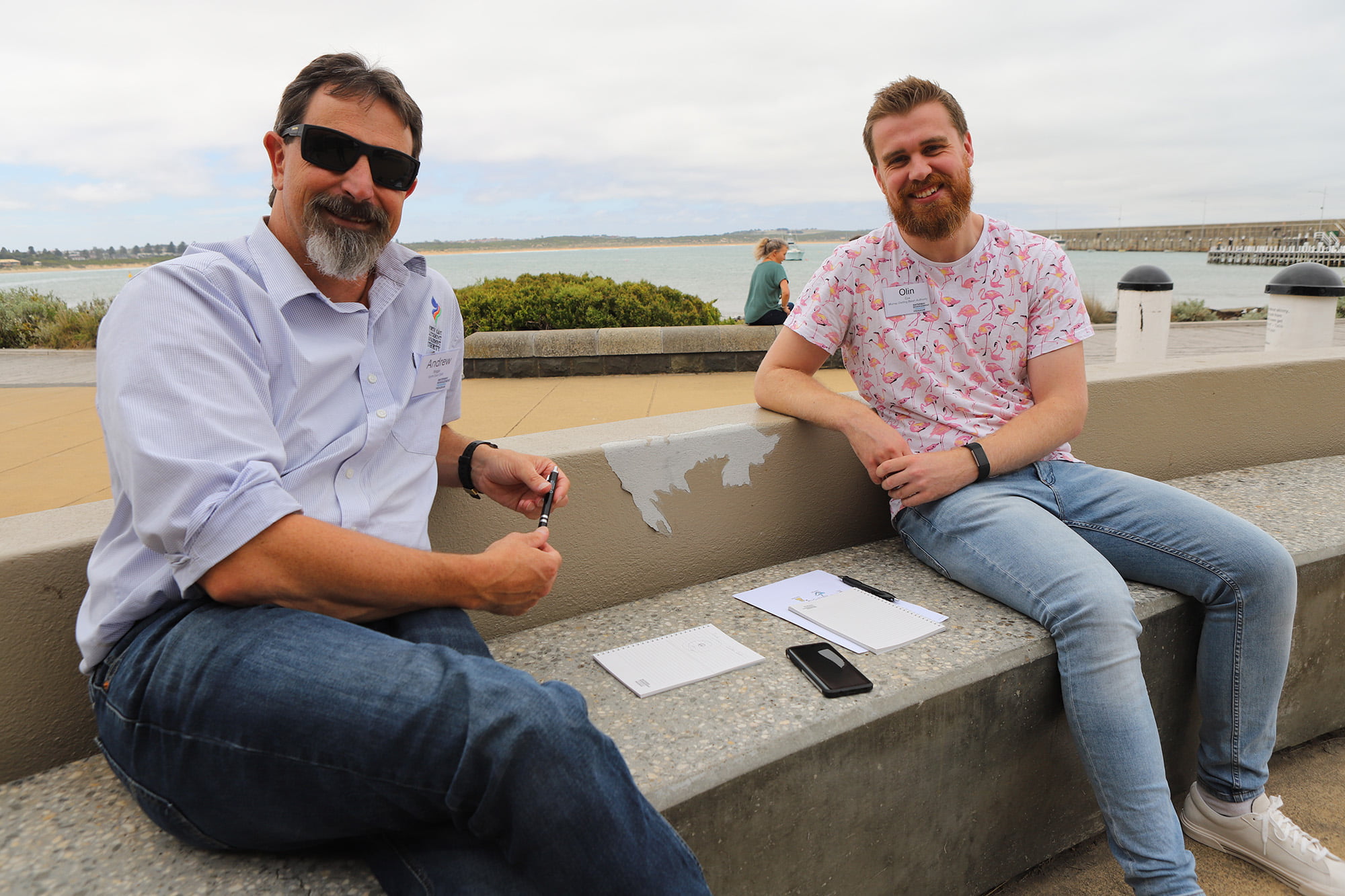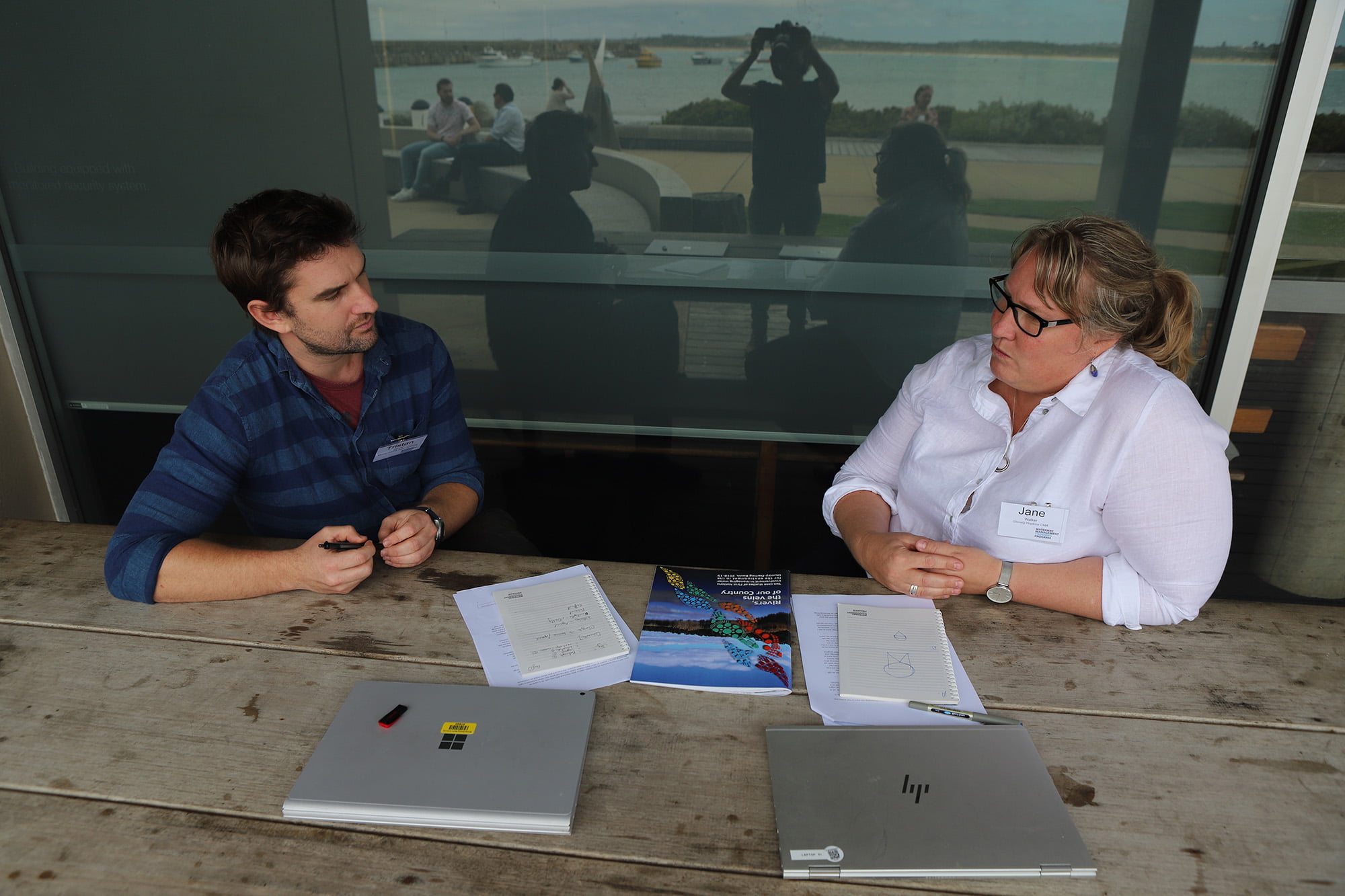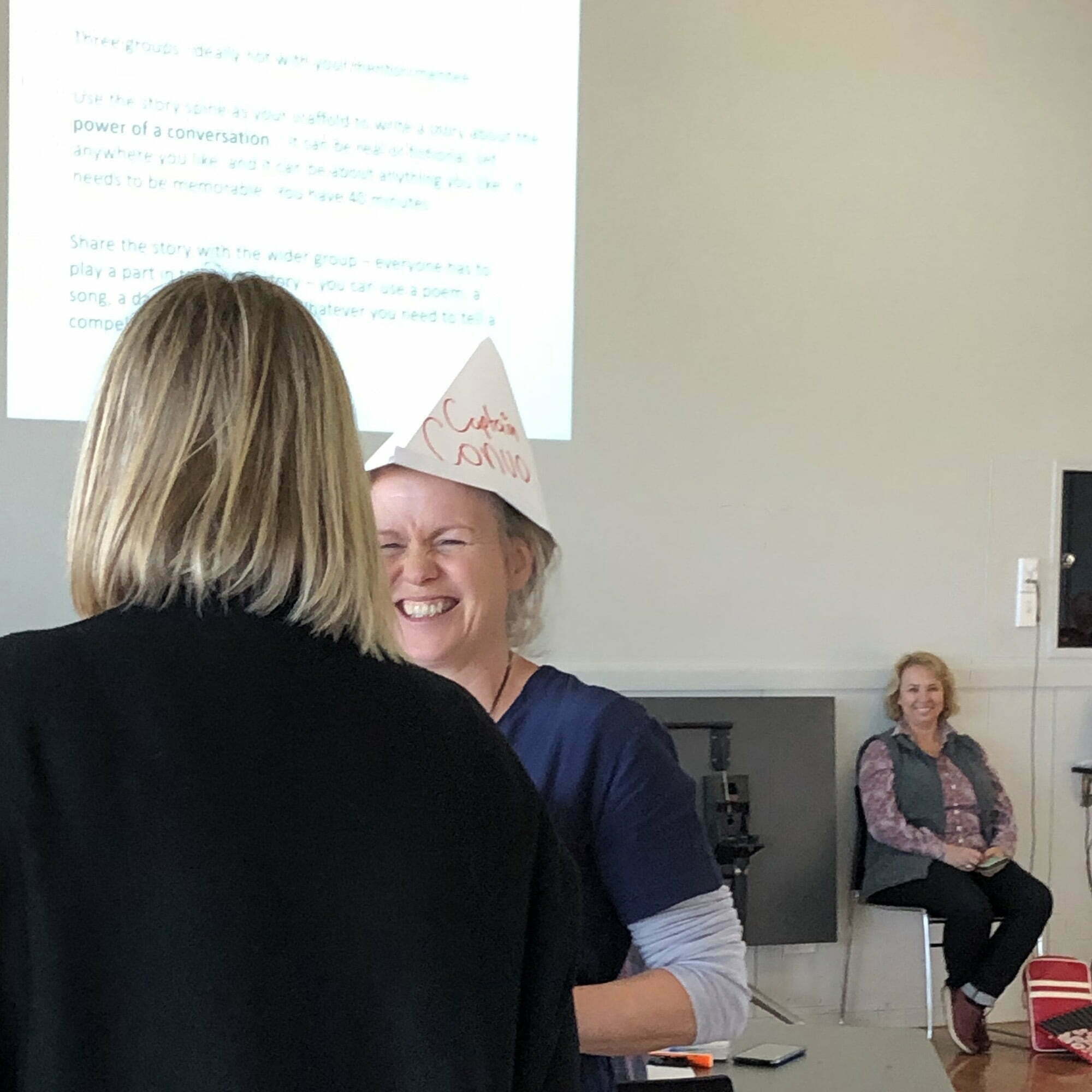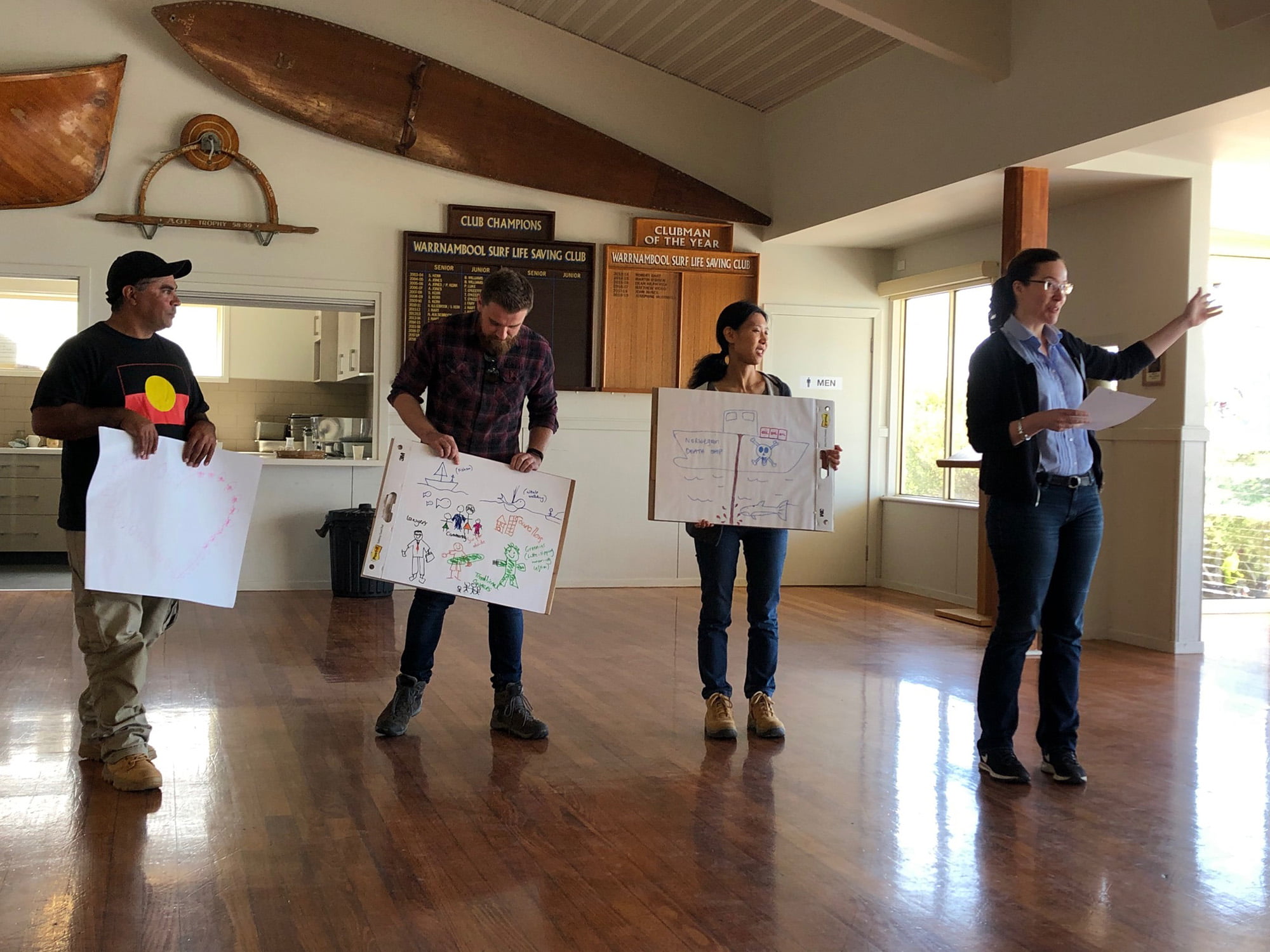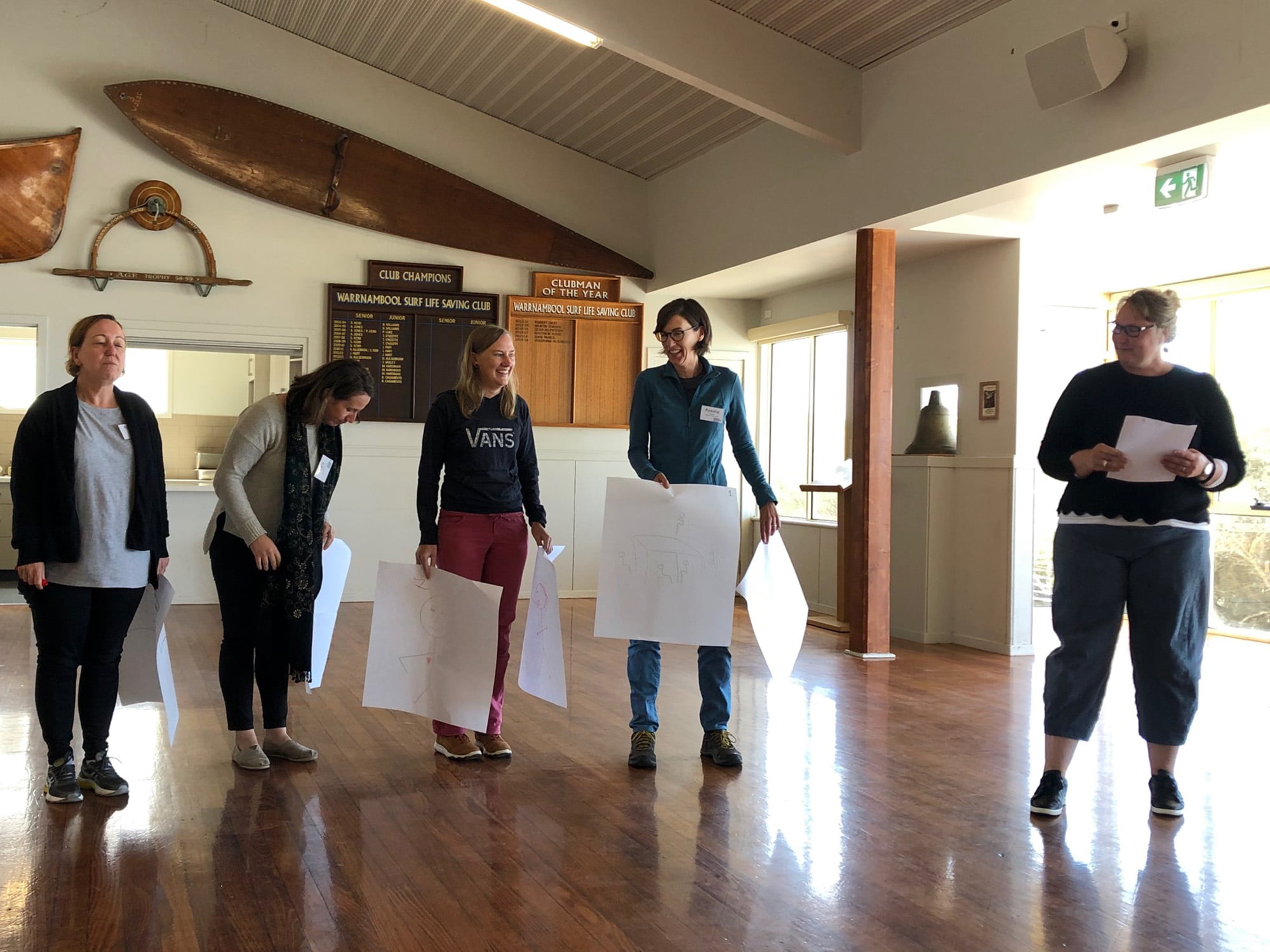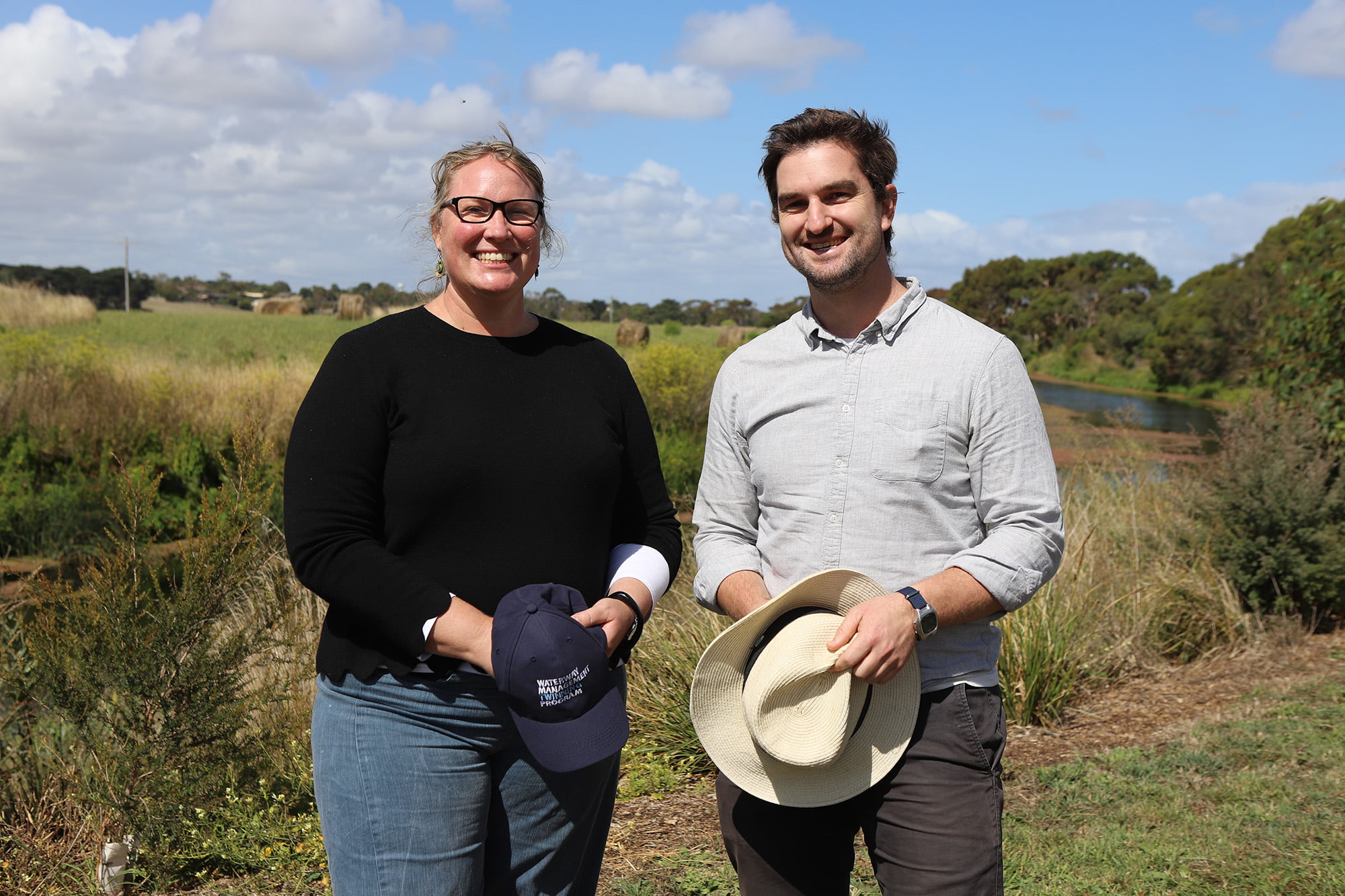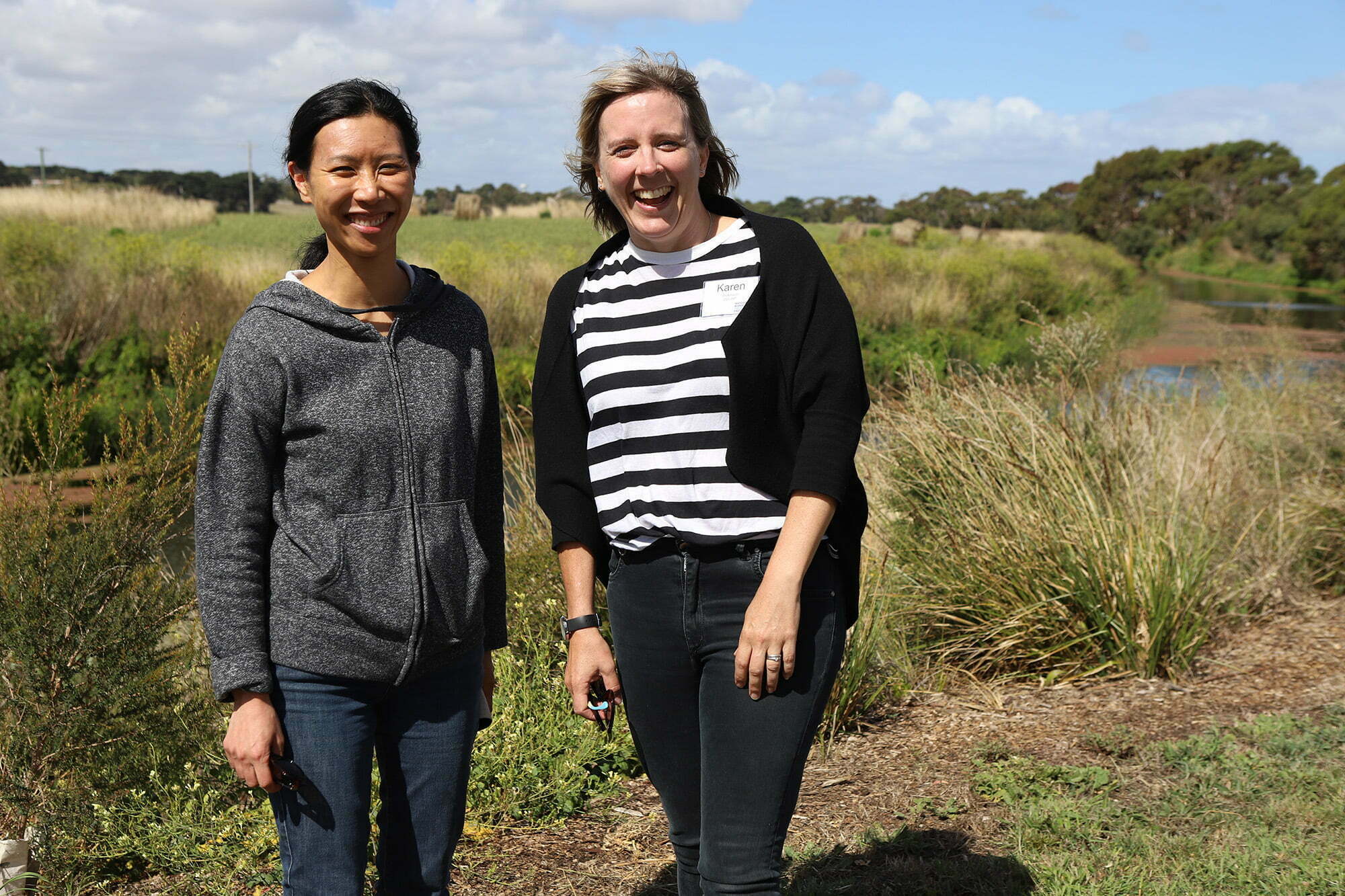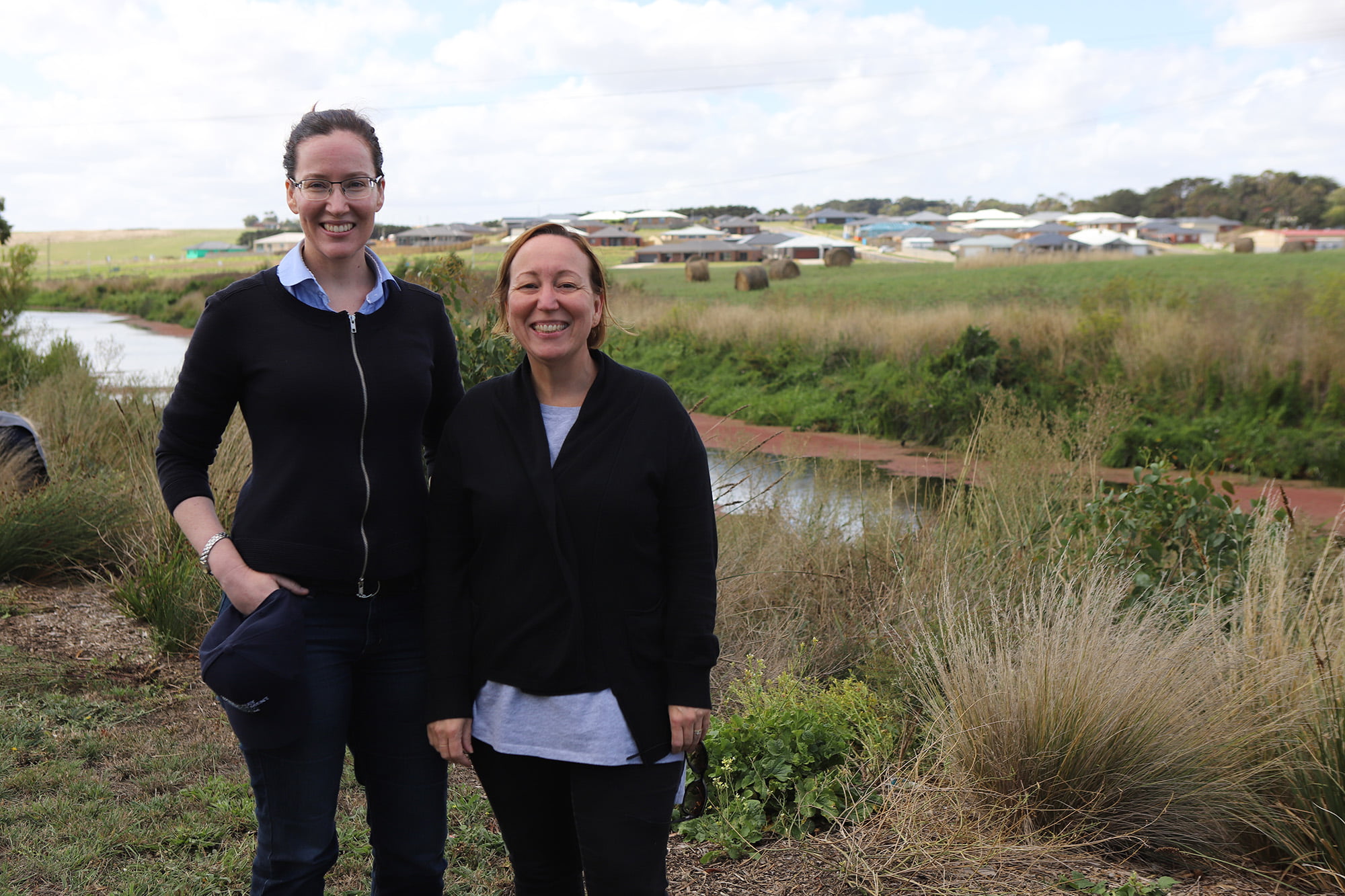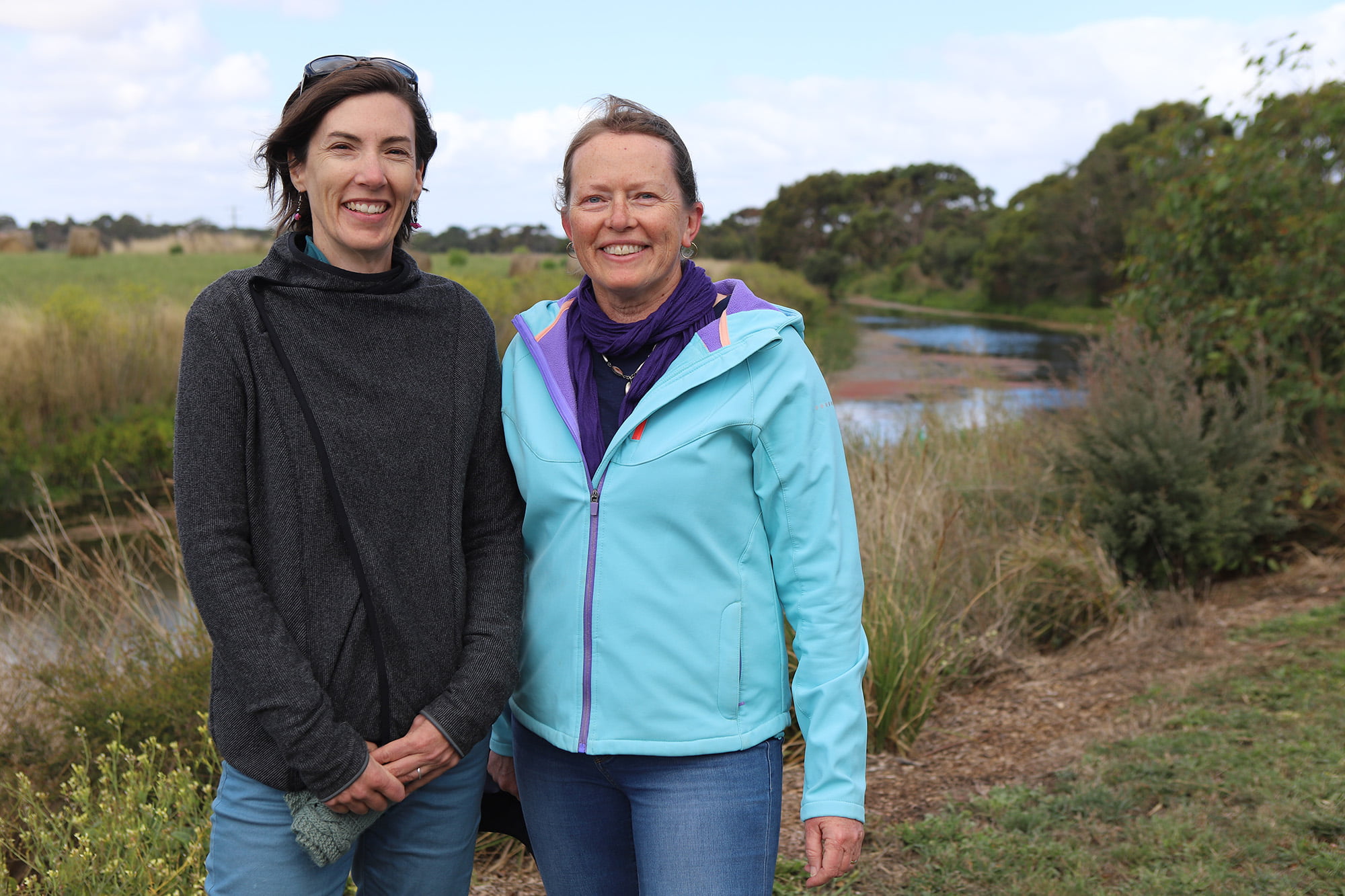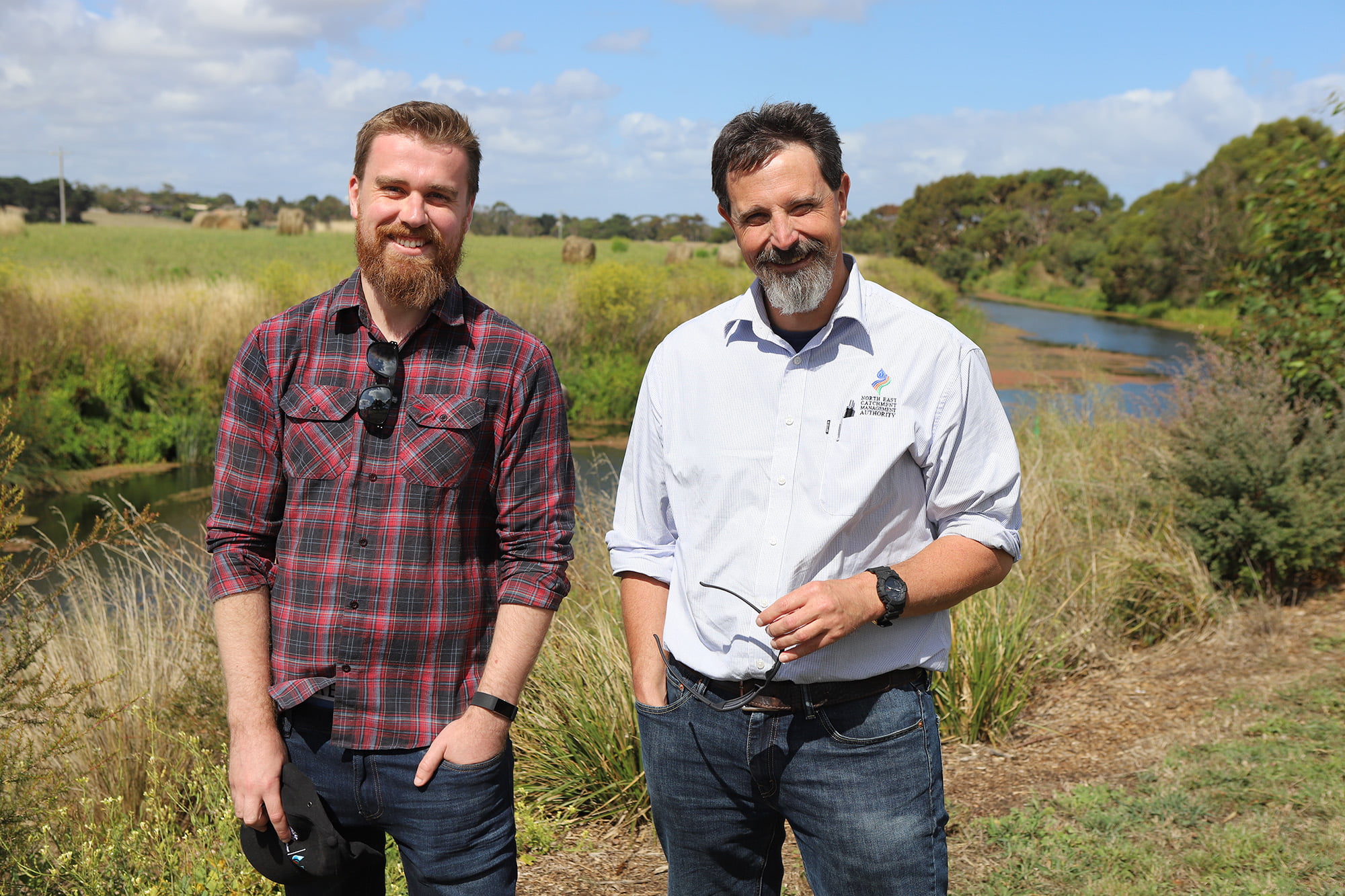We were fortunate to be able to run the first workshop for the 2020 program in Warrnambool in late February with seven new partnerships. Little did we know how soon we would be sent home from the office due to Covid-19. We are now planning our mid-year June workshop, with our thinking caps on about how to make it fun and interactive, even though we cannot be in the same place.
In the meantime, we wanted to let people know how this year got started, as we had a great three days getting the Program underway. We decided to tell the story of our first workshop using photos, as we experienced a variety of locations including the Merri River, Tower Hill volcano floor, sacred beach sites and the surf club.
Day one:
The first day, Tuesday 26th, started with an Eastern Maar Welcome to Country and Smoking Ceremony, a really special way to start the workshop.
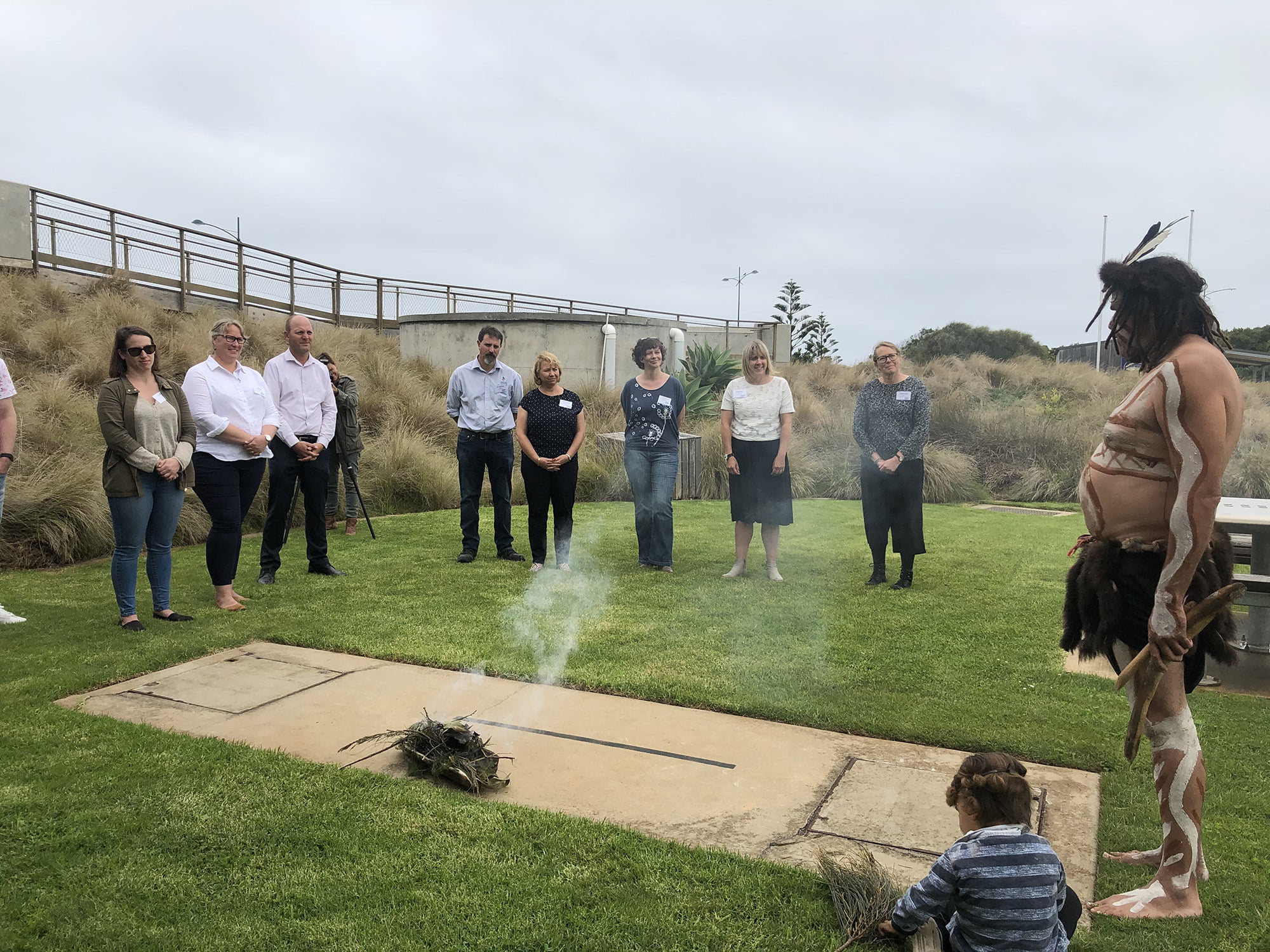
We then got underway, talking about our expectations as mentors and mentees, and what we hoped to achieve through the Program. Active listening and presentation skills were also a feature of the first day, with our newly formed mentoring partnerships providing a first introduction to the waterway management topics they will be focusing on over the next nine months.

There was much laughter and conversation at the shared dinner that night, and the next morning we looked at tips and tricks about how to have conversations that matter. A storytelling activity resulted in much hilarity… with the introduction of Trish as the ‘Convo Fairy’.
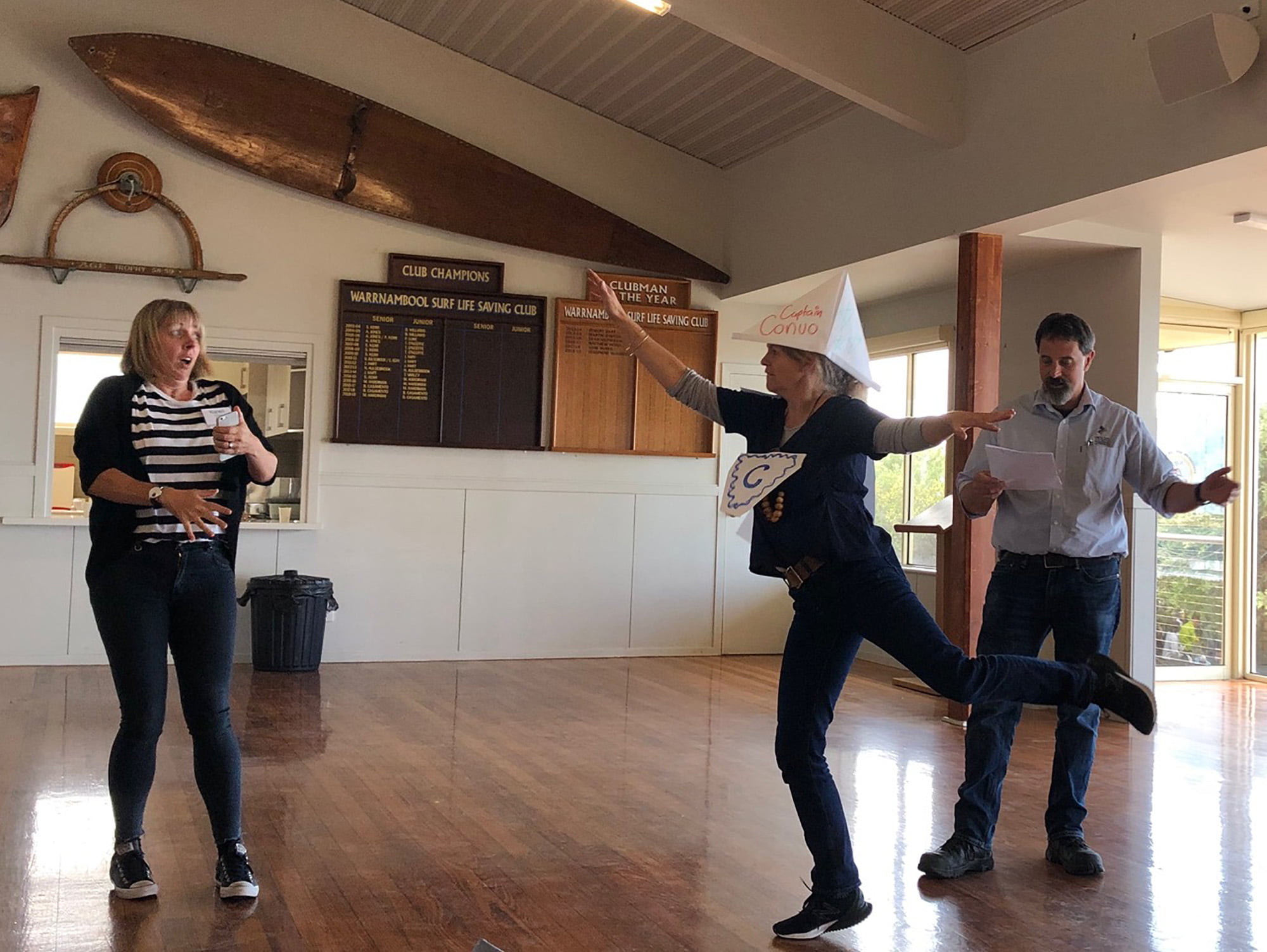
That afternoon we headed out on the bus to Tower Hill. Tower Hill is a volcanic formation believed to have erupted about 32,000 years ago. Its formation is known as a “nested maar” and it is the largest example of its type in Victoria. During formation, molten lava pushed its way up through the Earth’s crust and encountered a layer of water-bearing rock. Violent explosions followed creating a shallow crater which later filled with water to form the lake. Further eruptions occurred in the centre of this crater, creating the islands and cone shaped hills.
Archaeological surveys of the area have uncovered axe heads and other artefacts in the volcanic ash layers and local Aboriginal people would undoubtedly have witnessed the eruptions. The area was a rich source of food and shelter for different clans of the Gunditjmara Nation including the Koroit-gunditj and Peek Whurrong people.
Descendants of these family groups still live in the area today and participate in the management of the Tower Hill Visitor Centre and its retail and tourism services through the Worn Gundidj Aboriginal Cooperative.
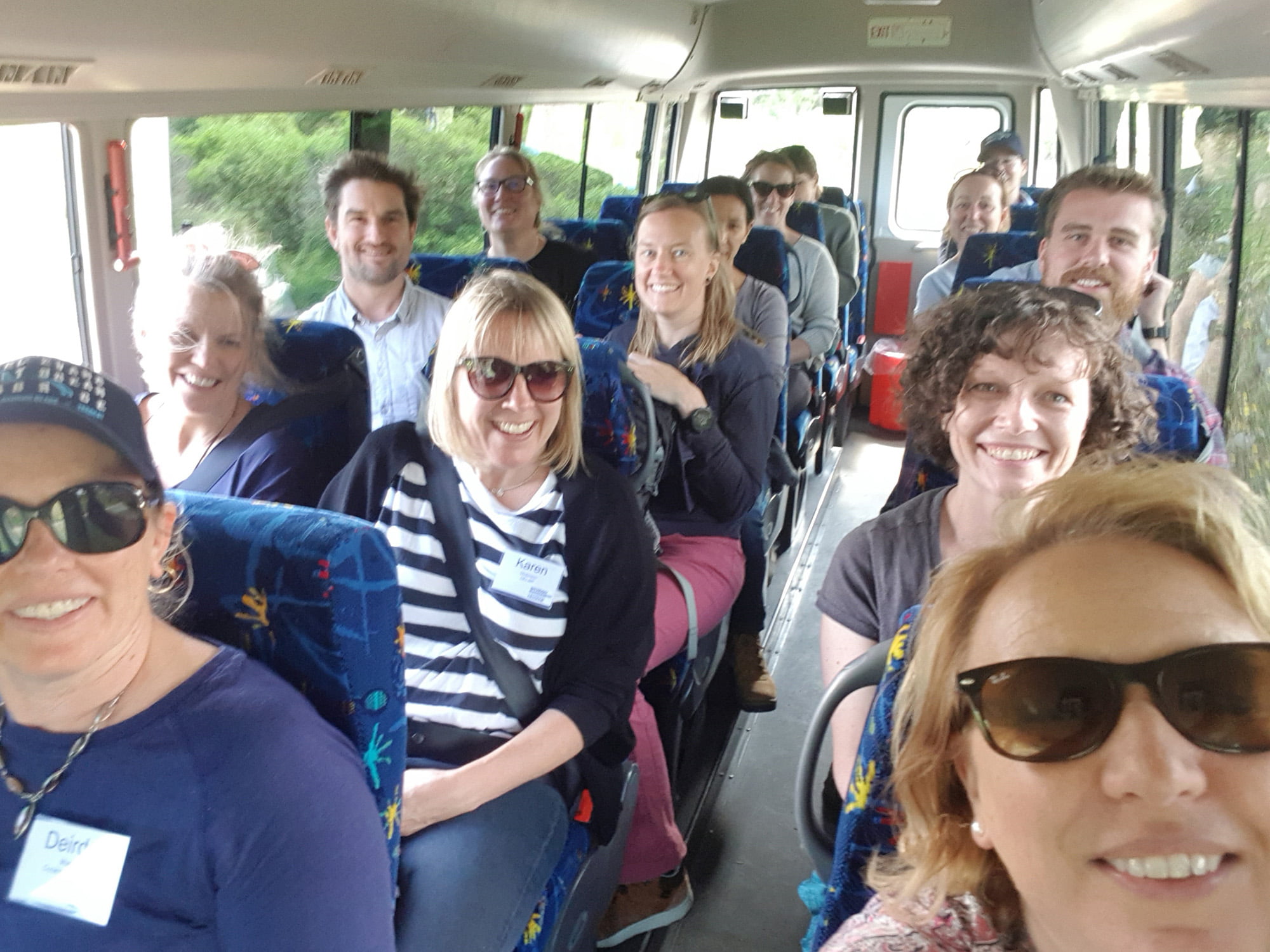
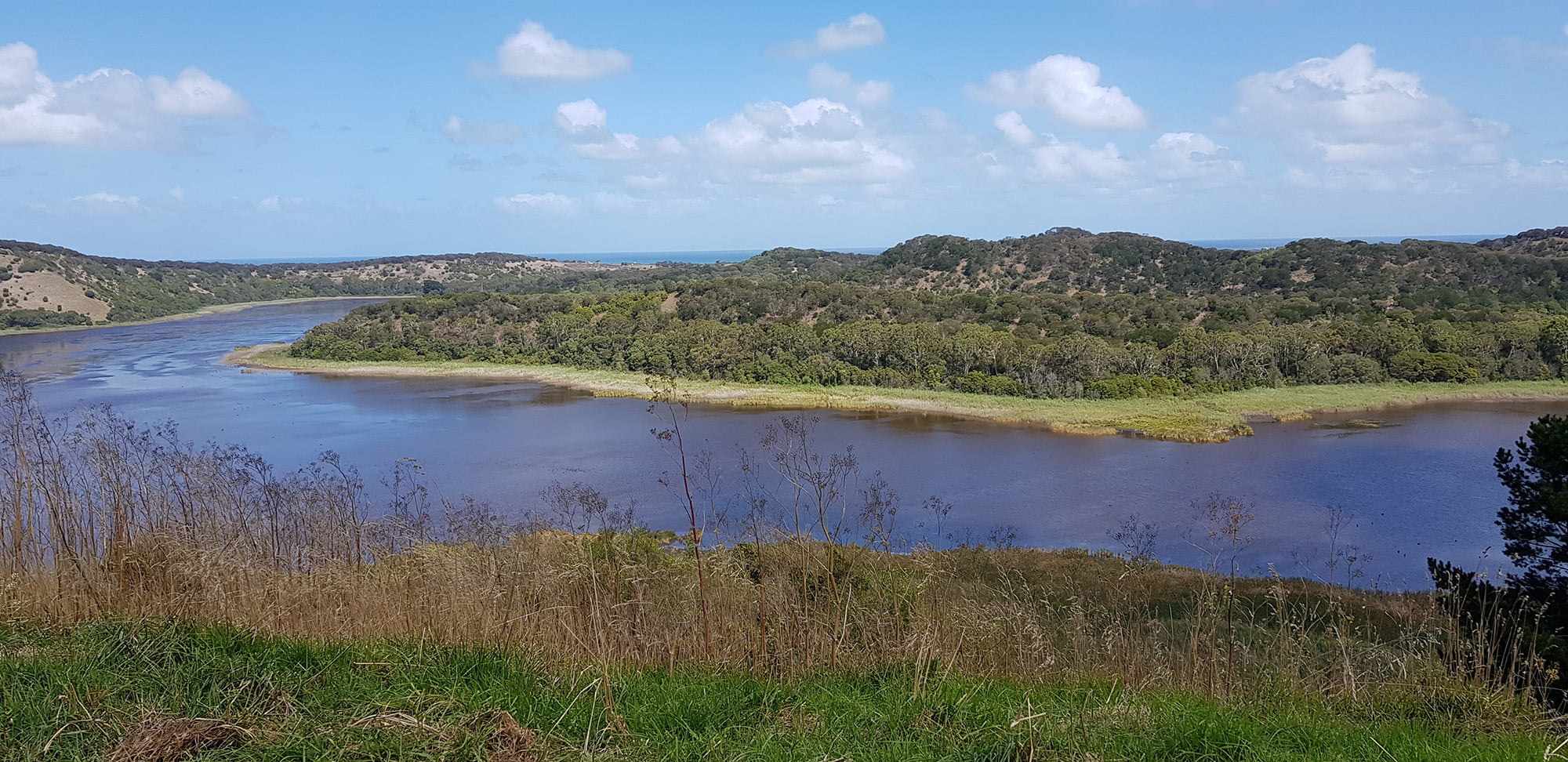
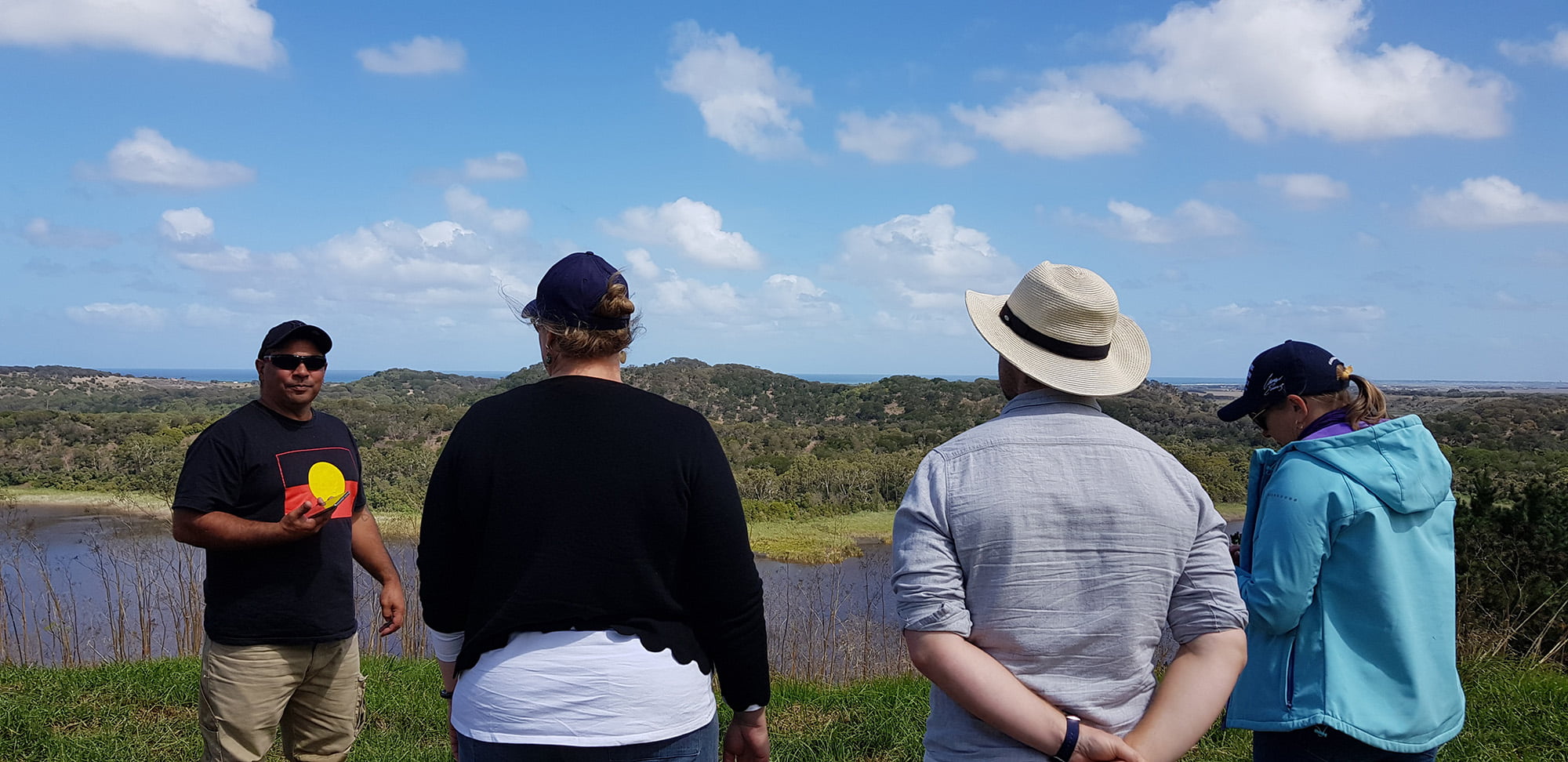
After our visit to Tower Hill we met with one of our Alumni, Alex Lewis on the banks of the Merri River. The Merri River has had four twinning projects focused on its rehabilitation and last year won a River Basin Management Society award for the work that has been done by the Merri River Alliance.
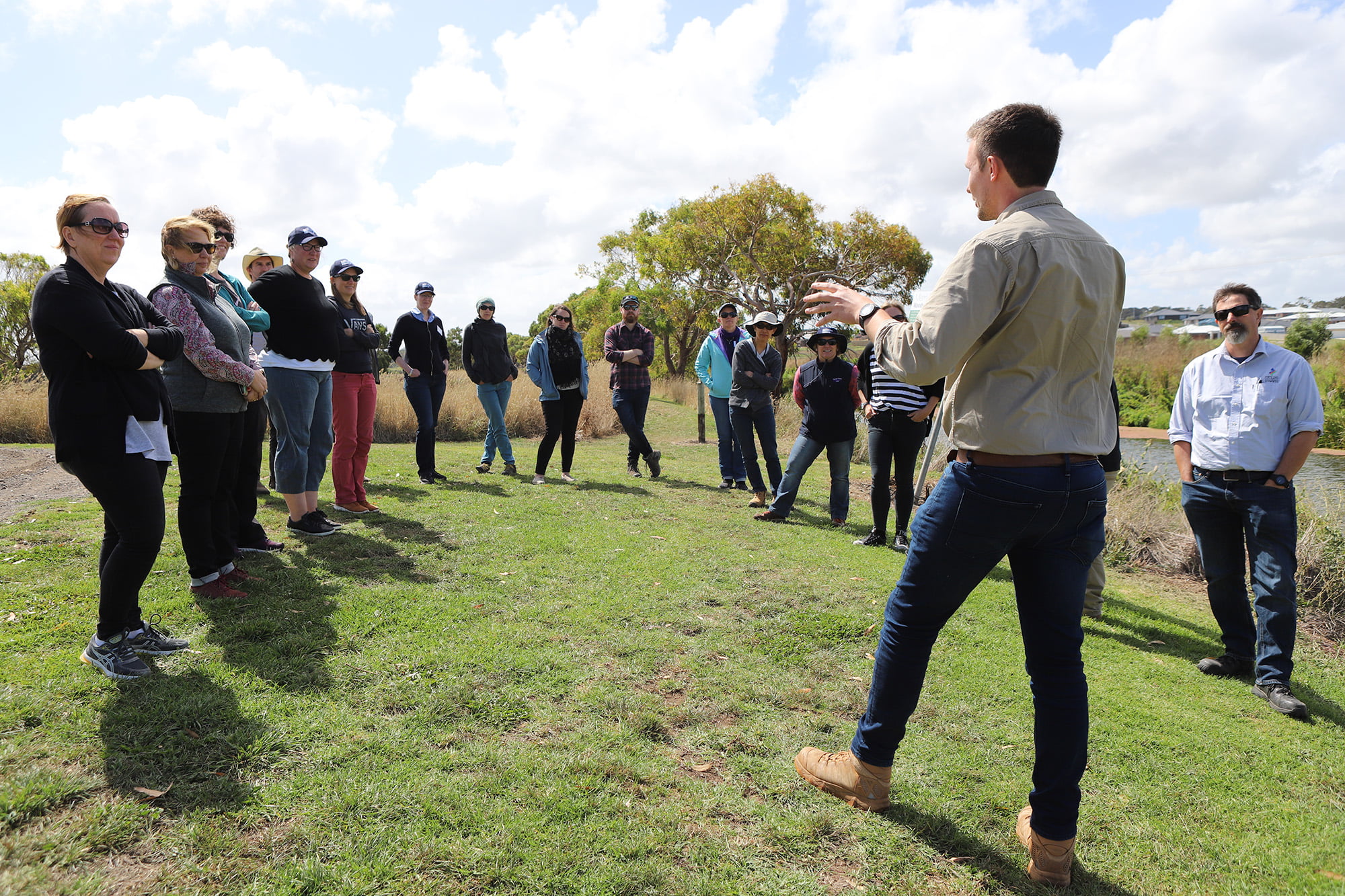
Our final stop of the field trip was the important Aboriginal site Moyjil (Point Ritchie) at the mouth of the Hopkins River. John Sherwood, a former board member of the Glenelg Hopkins CMA, gave a classic demonstration of the power of a well told story, capturing our group’s attention and showing us the midden and ancient fire places at this site that are evidence of peoples gathering here for tens of thousands of years.

Day two:
After another great shared dinner, the workshop resumed Thursday morning where mentor pairs developed their mentoring agreements, focusing on how they would communicate and work together over the next nine months.
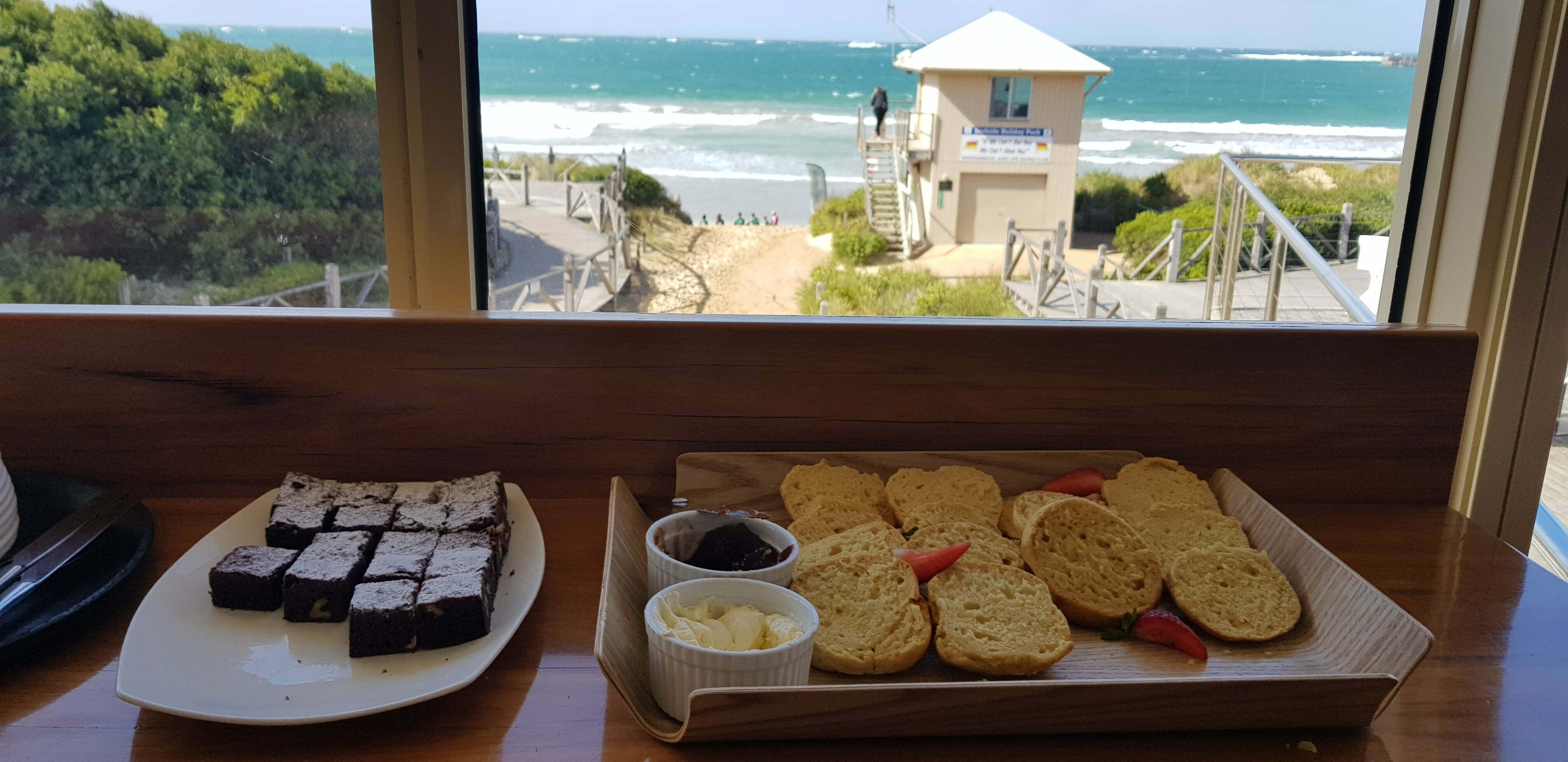

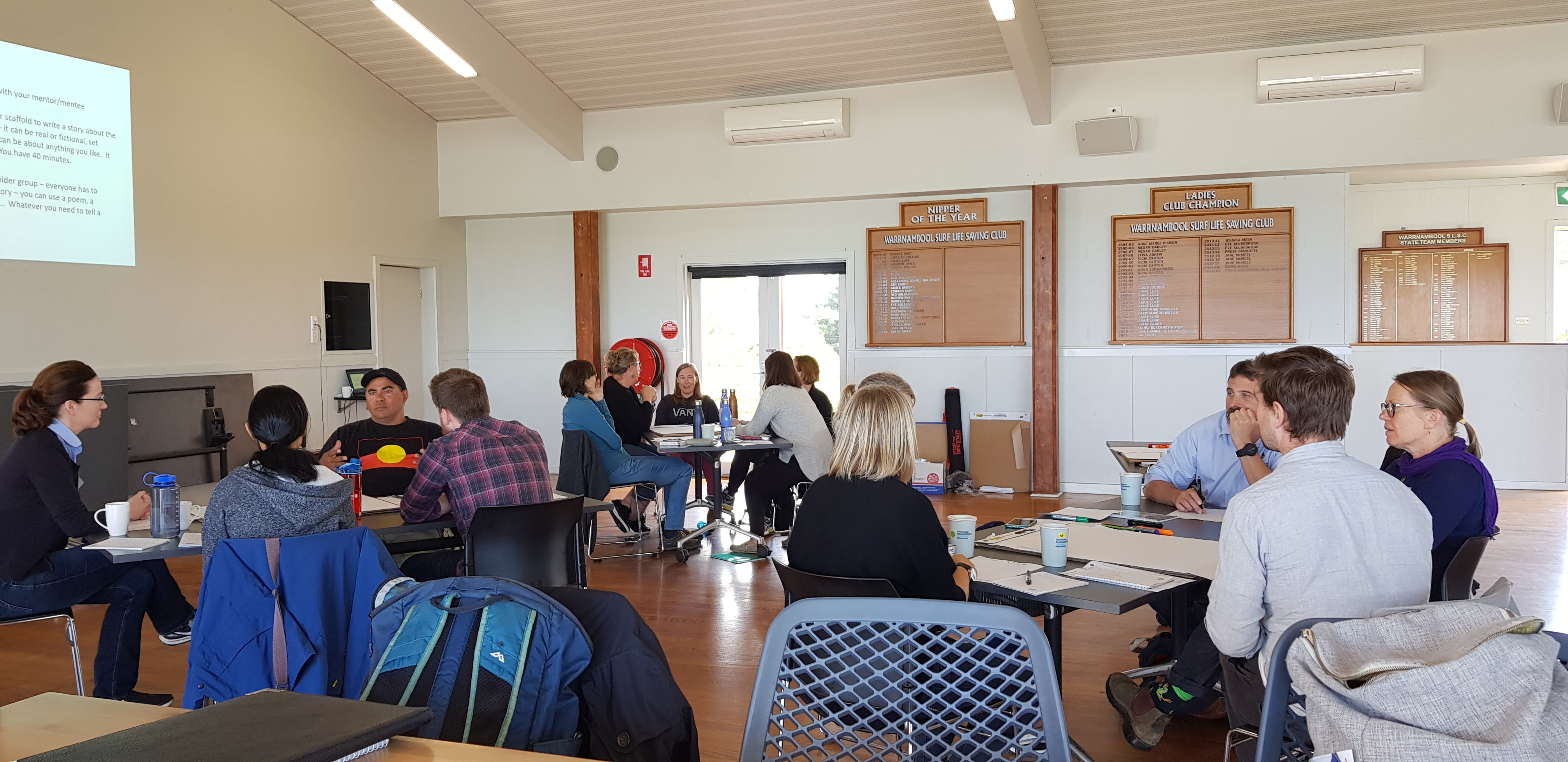
Introducing our Twinning Partnerships
We are now planning workshop two – here is our Steering Committee meeting with each of us joining in from home and learning how to use Microsoft Teams backdrops ?
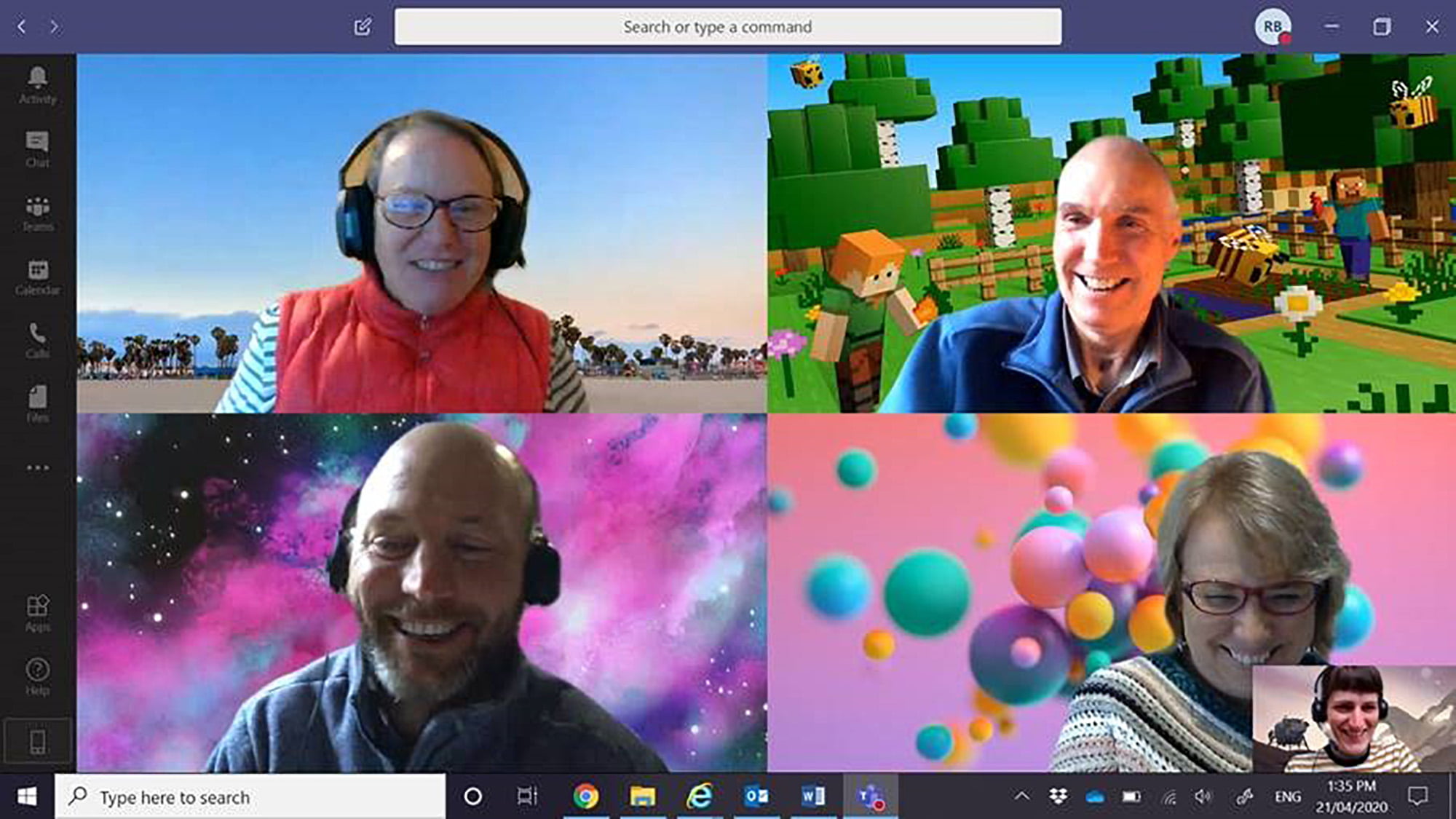
Join the 2021 Twinning Program
The Waterway Management Twinning Program is a structured mentoring program, focusing on improving the on-ground delivery of current Victorian riparian restoration projects. This Program provides an opportunity for the most effective approaches to be shared and adopted between all those working in waterway management across the State.
